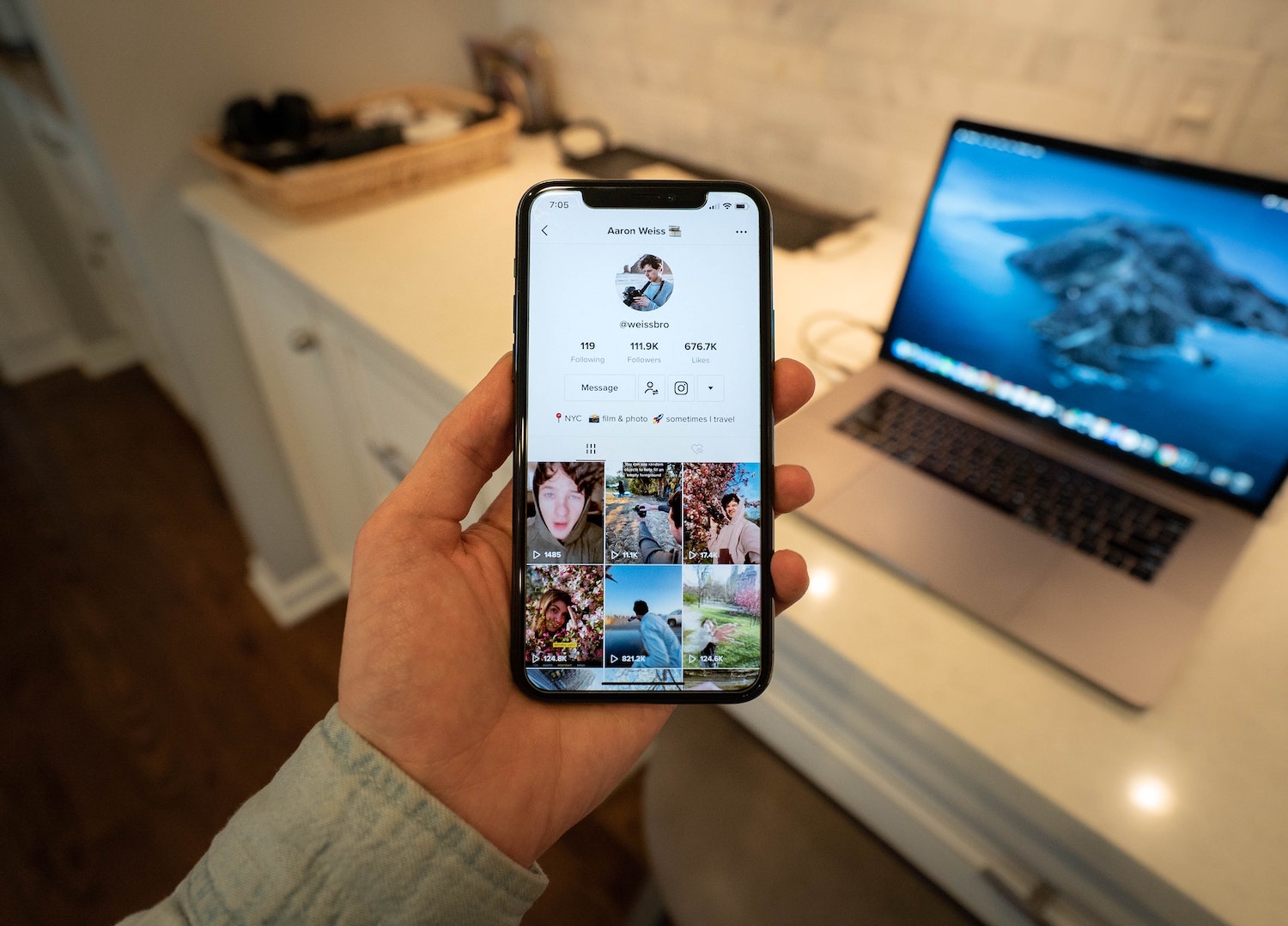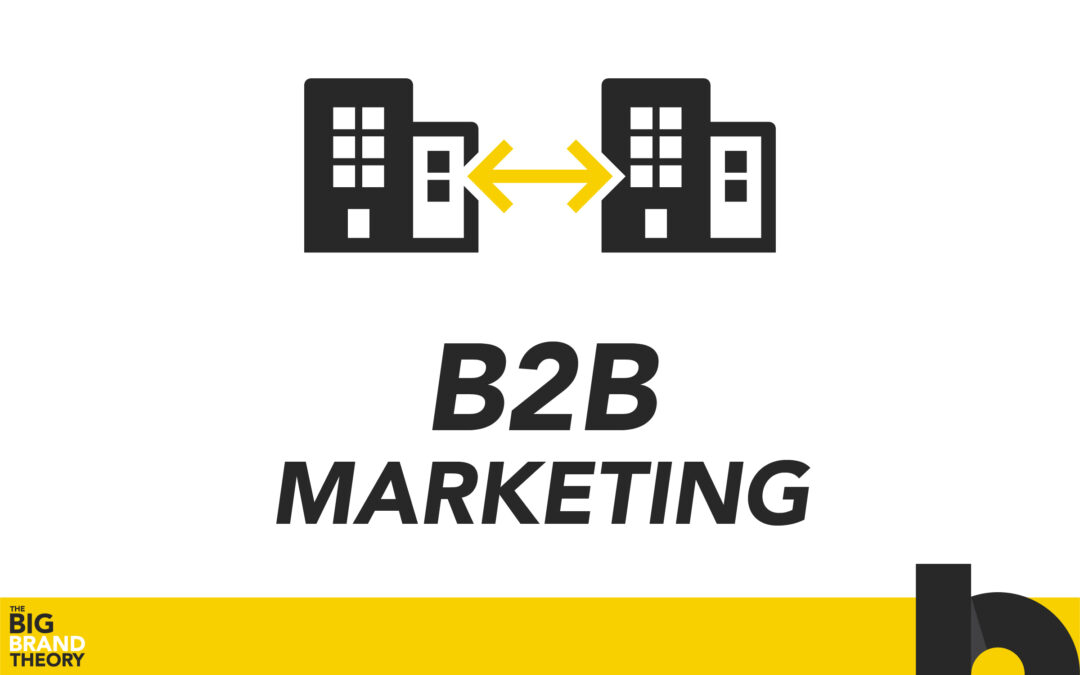Editor’s Note: Hey, hey! Our team at Blackwood has launched a podcast called The Big Brand Theory! This episode, our host, Ryan Zerfas, spoke with Zachary Conover, a Digital Marketing Specialist at Life Safety Services. The pair discuss the long game that is B2B marketing and break down how to truly get to know your target audience. If you’d prefer to listen to the episode, you can do so at this link. Enjoy!!
When you’re in the business of marketing to businesses, there are many things you have to think about that you wouldn’t otherwise. For example, when was the last time you thought about your own personal brand equity? If you’re in B2B marketing, brand equity is constantly at the forefront of your mind. Becoming a thought leader in your industry may be a long road, but it’s entirely worth it. Let’s take a look at the loyalty and longevity of B2B marketing.
What is B2B marketing versus B2C marketing?
B2B stands for “business to business,” while B2C stands for “business to consumer.” B2B marketing is geared towards other businesses, whereas B2C marketing is geared towards customers and the general public.
Both types of marketing operate on different financial levels, for the most part. With B2C marketing, you’re going to be looking at less of a dent in your bank account. As Zachary Conover, Digital Marketing Specialist at Life Safety Services, says, “A lot of consumers are more than willing to drop anything less than $100 online…but B2B [marketing] is very much more long term.” B2B marketing revolves largely around building up a large amount of brand equity and brand identity.
Additionally, it’s common – and highly encouraged – for businesses to strive to become thought leaders in their industry. Thought leaders are people or organizations who have built up such excellent reputations that they are the primary sources you refer to for information. Doesn’t that sound like any business’s dream?
So…what are brand identity and brand equity, then?
Brand identity is an amalgamation of the associations your audience and the general public have with your brand. Simply put, it’s how people recognize your brand. Brand equity, though, is sort of like the amount of backing your business has in the public eye.

For instance, you’d probably be more likely to go to a well-established dentist than someone right out of dental school. Not to say the recent graduate isn’t a great dentist, of course, but they haven’t built any brand equity for themselves; the established dentist is more trusted in the public eye because of their longevity. (Okay, weird example, but it works.🦷)
For B2B companies, both are incredibly important for many reasons. If you’re going to become a thought leader in your industry, you must first build up your brand recognition. The more people see you and are familiar with you, the more they’ll think about your business when they could use your product or service. Then, the longer your business operates, the more backing you’ll have from the public. Credibility from word-of-mouth recommendations is one of the most powerful marketing tools; take steps to ensure you’re making a good impression on your community – this will boost your brand equity in the long run.
If you really want to get better at B2B marketing, here are 4 steps you should take.
1. Put out fully optimized, high-quality content consistently.
Social media, and content in general, should be viewed as an investment in not only your business, but your customers. All of the content you post should be high-quality, match your branding, and most importantly, offer value to your audience. Your business’s presence online is like a long-term relationship: you gotta put effort in if you want it to work out in the long run! Zachary Conover says, “If you read a piece of content, and you read it, and you’re like, I didn’t get any value out of this, then there’s no value in that piece. And that’s what you need to add. And that takes time.”


2. Diversify the channels through which you reach your audience.
Direct mail. Email campaigns. Social media. Weekly newsletters. Frequent blog posts. YouTube videos. This is by no means an all-inclusive list; these are just some ideas to get you started! It’s essential to have a diverse array of platforms and methods to rely on to get through to your target audience. There are so many ways to reach your audience nowadays; the trick is finding the perfect ones for your business. That’s up to you. (Or us.😉)
3. Do regular SEO audits on all of your channels and ensure that they are fully optimized.
SEO (search engine optimization) sometimes sounds like magic, because it kinda feels like magic! There’s a certain way that you can set up your website or your web pages to rank in Google search results for specific keywords. Unfortunately, a lot of people don’t, don’t take advantage of the power of SEO. Your website could be your greatest lead traffic source. As Zachary Conover puts it, “for instance, if you’re a metal fabrication manufacturer, if you dominate the keyword metal fabrication, or metal manufacturing, or if you have even more specific niches like steel or iron, those keywords will help float your website to the top of the Google rankings.”


4. B2B marketing relies on knowing your target audience like the back of your hand.
“Think about that user,” says Zachary. “Put yourself in their shoes. If you’re looking at a website, and you think it sucks, it sucks. And therefore other people are going to look at it, and they’re going to think the exact same thing.” Your target audience should be first and foremost in everything you do. After all, they’re the entire reason you’re doing what you’re doing!
B2B marketing is not a “quick fix.” In most cases, it’s probably not going to make your business an overnight success – but hey, Rome wasn’t built in a day. If your current marketing strategy just isn’t cutting it anymore, you’ve come to the right place. Our team of experts here at Blackwood Creative would be more than happy to work with you and help you meet and exceed your business goals. We’re in the business of building remarkable brands – yours could be next. Reach out to us today!
Interested in listening to this episode and more of The Big Brand Theory Podcast? Visit this web page for streaming options!

